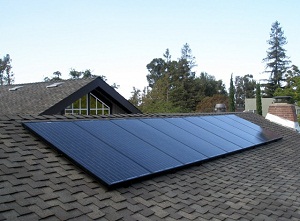Westinghouse Solar sues Canadian Solar, Zep Solar over patents
 Westinghouse Solar on Oct. 4 said it filed a complaint against Canadian Solar and Zep Solar in the U.S. International Trade Commission (ITC), alleging patent infringement. The complaint could be a much quicker route to halting the import of certain modules from both manufacturers than the patent suits that Westinghouse Solar has filed against the companies.
Westinghouse Solar on Oct. 4 said it filed a complaint against Canadian Solar and Zep Solar in the U.S. International Trade Commission (ITC), alleging patent infringement. The complaint could be a much quicker route to halting the import of certain modules from both manufacturers than the patent suits that Westinghouse Solar has filed against the companies.
While unrelated to recent stories that U.S. solar manufacturers are looking into actions to take against cheap Chinese imports, it reveals that the U.S. solar industry is ready to fight back over the increasing competition from the Chinese solar market, which some contend has been unfair.
But this particular case is purely about patent infringements on intellectual property, said Westinghouse Solar President Barry Cinnamon. Westinghouse Solar uses Chinese-manufactured photovoltaics in its all-in-one modules, he said.
In this case, the company is defending U.S. Patent Numbers 7,406,800 and 7,987,641 relating to Westinghouse Solar’s all-in-one photovoltaic modules that integrate wiring, mounting, and grounding into the device.
“It’s important to make the distinction that it isn’t a U.S.-China issue,” he said. It’s just Westinghouse Solar protecting our patent rights that we have all over the world.”
One patent relates to the integrated racking system, according to Cinnamon. The other is related to physical grooving in the panel that allows for easier bracketing and interconnecting, he said.
In its complaint, Westinghouse Solar seeks an investigation into both companies and a permanent exclusion order barring some of their products from being imported to the U.S.
“As well as a cease and desist order prohibiting the importation, sale, or advertising of these products,” the company said in a press release.
“There’s ongoing federal litigation that’s two years old,” Cinnamon said.
The action filed with the ITC is different than the federal suit, he said.
“It’s a different form of remedy,” he said. “The federal court takes a lot of time, this is faster.”
Despite the federal suit, the companies can still sell the goods in question in the U.S., Cinnamon said.
“If something is being manufactured overseas, the ITC can enforce patent rights. And they would ban the import into the U.S.,” he said. “This is an additional avenue we’re pursing to protect our [intellectual property].”
The reason for the action has become more relevant as photovoltaic prices have dropped, according to Cinnamon.
“Now the solar panels are really, really cheap and installation costs, and balance-of-systems coasts are a very big percent of the cost of installations,” he said.
By integrating some of those balance-of-system costs into the photovoltaic module itself, Westinghouse Solar developed a module that costs more upfront but reduced those additional costs by simplifying installation.
Image courtesy of Westinghouse Solar.



